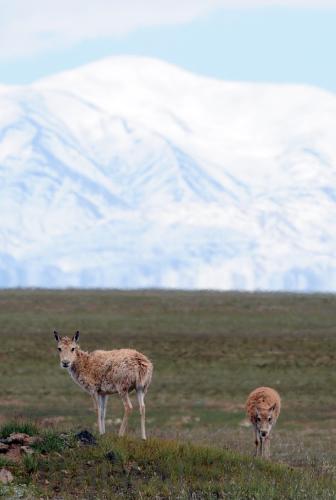|
Greater numbers of species are disappearing from the planet. Biodiversity protection has become an urgent task for all of us. Given this, the UN declared 2010 the International Year of Biodiversity.
Chinese conservationists call for increased awareness of the importance of saving the biodiversity. The following are the perspectives of some Chinese scientists on the significance of, and measures for, biodiversity protection:
Lu Zhi (professor of conservation biology at the School of Life Sciences of Peking University):
Biodiversity is both universal and specific. Species you see in other places may also be found in the place where you live. But some of them can only survive in certain geological and climatic conditions.
The International Union for Conservation of Nature (IUCN) divides nature reserves into different types, which are national, co-management, private and community nature reserves. Of these, the community nature reserve is owned or managed by a community.
It is estimated there are about 28 million hectares of protected forest area around the world managed solely by communities, nearly 11 percent of the world's total forest area. Currently, community reserves are attracting greater attention and are considered one of the means of promoting aboriginal communities development and cultural identity.
 |
|
FIGHTING EXTINCTION: Fifteen Thalasseus zimmermanni, known as "legendary birds" for their rareness, are seen in the Minjiang River estuary wetland, Fujian Province, in May 2009. Scientists estimate there are less than 50 types of birds in the world (XINHUA) |
 |
|
HOME OF WILDLIFE: Two Tibetan antelopes walk on a pasture in the Hoh Xil National Nature Reserve on the Qinghai-Tibet Plateau (XINHUA) |
In some areas of China, once a unique tradition of nature conservation has been formed, it becomes a community reserve in reality, such as the "holy mountains and sacred lakes" in Tibet. These types of nature reserves are based on traditional cultures and religions. They demonstrate a combination of cultural values and natural values, and satisfy the communities' respect for the nature.
A survey conducted by the Department of Conservation Biology of Peking University shows in Ganzi Tibetan Autonomous Prefecture, Sichuan Province, there are 1,400 holy hills, covering an area of 5.1 million hectares, accounting for 33 percent of the prefecture's total land area.
The development of community nature reserves is not simply for conservation. Instead, it aims to let communities benefit from biological conservation based on sustainable use of local natural resources.
Take the Yunnan snub-nosed monkeys, one of China's starring species of conservation, for example. In order to protect the species, the local government invested a large amount of money in building two national and two provincial nature reserves to protect their habitats. Even so, the survey of Long Yongcheng, leader of a national expert group on primates, noted among the 13 groups of Yunnan snub-nosed monkeys surveyed, six remain outside the reserves, and two near the reserves.
It is worth noting community reserves have become key frontiers for the protection of the snub-nosed monkeys. Bamei Village in Deqin County of Yunnan Province is one of these reserves.
| 